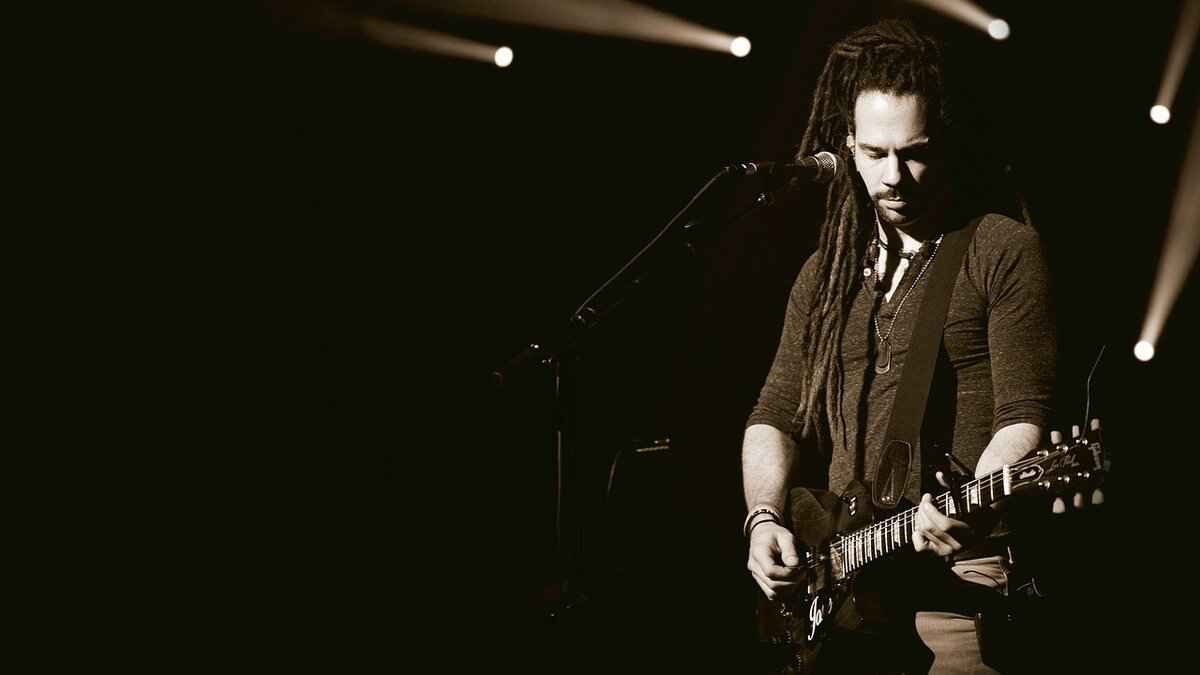This article delves into the various costs and options associated with shipping a guitar. Understanding these factors is crucial for anyone looking to send their instrument safely and affordably. We will explore the elements that influence shipping rates, provide packaging tips, and identify the best carriers for your specific needs.
Understanding Guitar Shipping Costs
Shipping costs for guitars can vary widely based on several key factors. It’s essential to grasp these variables to effectively budget your shipment. Typically, the cost is influenced by the weight and dimensions of the package, the shipping destination, and the chosen shipping method. Additionally, shipping insurance and tracking options may add to the overall cost, but they also provide peace of mind.
Factors Influencing Shipping Rates
- Size and Weight Considerations: The dimensions and weight of your guitar are pivotal in determining shipping costs. Larger and heavier guitars usually incur higher fees.
- Destination and Shipping Method: The location to which you are sending your guitar significantly impacts costs. Different carriers offer varied rates based on distance and service level.
Size and Weight Considerations
The size and weight of your guitar can dramatically affect shipping costs. For instance, a standard electric guitar may weigh around 7-10 pounds, while an acoustic guitar can weigh slightly more. It’s important to weigh your guitar accurately and measure its dimensions to avoid unexpected charges during shipping.
Measuring Your Guitar Properly
Accurate measurements are crucial for calculating shipping costs. Measure your guitar’s length, width, and height, and ensure that you include any additional packaging materials in your dimensions. This will help you select the correct shipping option and prevent any surprises at the shipping counter.
Weight Classifications
Shipping carriers categorize packages based on weight, which can influence the shipping cost. Familiarizing yourself with these classifications can help you find the most economical shipping option for your guitar.
Best Carriers for Shipping Guitars
Choosing the right carrier is vital for ensuring your guitar arrives safely and on time. Different carriers offer various services and price points, making it essential to compare options.
USPS vs. UPS vs. FedEx
Each shipping carrier has its pros and cons. USPS is often the most affordable option for smaller packages, while UPS and FedEx may provide faster delivery for larger items. Consider your priorities, such as cost, speed, and reliability, when selecting a carrier.
International Shipping Options
If you’re shipping a guitar internationally, understanding the available options is crucial for compliance and cost-effectiveness. Different countries may have specific regulations regarding shipping musical instruments, so be sure to check these before sending your guitar abroad.
Packaging Your Guitar for Safe Shipping
Proper packaging is vital to protect your guitar during transit. A well-packaged instrument is less likely to sustain damage, ensuring that it arrives in perfect condition.
Choosing the Right Box
Selecting an appropriate shipping box can prevent damage. Look for a sturdy box designed specifically for guitars, ensuring a snug fit to minimize movement during shipping.
Padding and Protection Techniques
Using padding materials like bubble wrap and foam can add extra protection. Wrap your guitar securely, paying particular attention to the neck and headstock, which are often the most vulnerable areas during transit.
Insurance and Tracking Options
When shipping valuable items like guitars, insurance and tracking are important for peace of mind. Understanding these options can safeguard your investment and ensure that you can monitor your shipment’s progress.
Why You Should Insure Your Shipment
Insuring your shipment can protect against loss or damage. Knowing the value of your guitar will help you choose the right coverage, providing reassurance during the shipping process.
Tracking Your Shipment
Many carriers offer tracking services, allowing you to monitor your shipment’s progress. This feature can provide reassurance during transit, ensuring you know exactly when your guitar will arrive.

Understanding Guitar Shipping Costs
is crucial for anyone looking to send their beloved instrument safely and efficiently. Shipping costs for guitars can fluctuate significantly based on a range of factors. By grasping these variables, you can make informed decisions and budget your shipment effectively.
When considering the costs associated with shipping a guitar, it is essential to understand that various elements come into play. These include the size and weight of the guitar, the destination, and the shipping method chosen. Each of these factors can dramatically impact the overall cost, making it vital to evaluate them thoroughly.
| Factor | Impact on Cost |
|---|---|
| Size | Larger guitars require more space, leading to higher fees. |
| Weight | Heavier guitars incur additional charges based on weight classifications. |
| Destination | Longer distances and international shipping can significantly increase costs. |
| Shipping Method | Express services are usually more expensive than standard options. |
Accurate measurements of your guitar are essential when calculating shipping costs. Knowing the exact dimensions can help you avoid unexpected charges. Carriers often categorize packages based on weight, so understanding these classifications can lead you to the most economical shipping option.
Additionally, the destination of your shipment plays a significant role in determining costs. For example, shipping a guitar across the country will typically cost less than sending it internationally. Different carriers also have varied rates based on distance and service levels, making it beneficial to compare options.
When it comes to choosing the right shipping method, you have several options. Standard shipping is generally the most cost-effective but may take longer. On the other hand, expedited services offer quicker delivery but come at a premium. It’s essential to weigh the urgency of your shipment against your budget to find the best fit.
In summary, understanding the various components that influence guitar shipping costs is vital for effective budgeting. By considering factors such as size, weight, destination, and shipping method, you can make informed decisions that ensure your guitar arrives safely and within your budget.

Factors Influencing Shipping Rates
When it comes to shipping guitars, understanding the various is essential for both sellers and buyers. Several elements can affect the cost of shipping, and being aware of these can help you make informed decisions. This section will explore the key factors that determine shipping rates and provide insights to help you choose the best shipping options for your guitar.
Shipping rates for guitars can vary widely due to multiple considerations. Here are the primary factors that come into play:
- Size of the Guitar: The dimensions of your guitar, including its length, width, and height, significantly impact shipping costs. Larger instruments require more space and thus incur higher fees.
- Weight: Heavier guitars typically cost more to ship. Shipping carriers often categorize packages by weight, and exceeding certain weight thresholds can lead to increased charges.
- Destination: The distance between the shipping origin and destination plays a crucial role in determining costs. Shipping a guitar across the country will usually be more expensive than sending it locally.
- Shipping Method: Different shipping methods (standard, expedited, overnight) come with varying price points. Choosing a faster shipping option often results in higher costs.
- Insurance and Tracking: Opting for insurance and tracking services can add to the overall shipping cost, but they provide essential protection and peace of mind, especially for valuable instruments.
Understanding these factors enables you to budget more effectively and select the most suitable shipping option for your guitar. For instance, if you’re shipping a lightweight acoustic guitar locally, you might opt for a standard shipping method to save on costs. Conversely, if you’re sending a heavy electric guitar internationally, you may need to consider expedited shipping and insurance for added security.
Moreover, it’s essential to compare different carriers, as each may have unique pricing structures. For example, while one carrier may offer lower rates for heavier shipments, another might provide better pricing for smaller packages. By evaluating these options, you can find the most economical choice that meets your shipping needs.
In summary, the shipping rates for guitars are influenced by a combination of size, weight, destination, and chosen shipping method. By understanding these factors, you can make more informed decisions and ensure that your guitar arrives safely and at a reasonable cost.
Size and Weight Considerations
When it comes to shipping a guitar, understanding the size and weight considerations is vital. These two factors are not just numbers; they significantly impact the overall shipping costs and logistics involved in ensuring your guitar arrives safely at its destination. In this section, we will explore how these elements influence shipping fees and what you can do to manage them effectively.
The dimensions and weight of your guitar play a crucial role in determining shipping costs. Generally, larger and heavier guitars incur higher fees due to the increased space they occupy and the additional weight that shipping carriers must handle. For instance, a standard acoustic guitar typically measures around 40 inches in length and 15 inches in width, while an electric guitar might be slightly smaller. Understanding these measurements can help you estimate shipping costs more accurately.
Shipping carriers often use a concept known as dimensional weight (or volumetric weight) to calculate shipping fees. This means that if your guitar’s dimensions are large, even if it is lightweight, you may still be charged based on its size. For example, a lightweight guitar in a large box might be subject to higher shipping costs than a heavier guitar in a more compact package. Therefore, it is essential to measure your guitar accurately and choose a box that fits snugly without unnecessary excess space.
- Measuring Your Guitar: Use a tape measure to obtain the length, width, and height of your guitar. Remember to include any additional packaging materials in your measurements.
- Weight Classifications: Shipping carriers categorize packages into weight classes. Familiarize yourself with these classifications to select the most economical shipping option.
- Choosing the Right Box: Opt for a box that is sturdy and designed specifically for guitars. A well-fitted box minimizes movement during transit, reducing the risk of damage.
Furthermore, the weight of your guitar can be a determining factor in shipping costs. Guitars made from heavier woods, such as mahogany or rosewood, will generally weigh more than those crafted from lighter materials like basswood or alder. Understanding the weight of your instrument helps in selecting the most cost-effective shipping method.
In addition to size and weight, consider the destination of your shipment. Shipping a guitar internationally may involve additional fees based on weight and size, as well as customs duties that may apply. Always check with your carrier for specific guidelines related to international shipments.
By being aware of the size and weight considerations, you can make informed decisions that not only save you money but also ensure that your guitar arrives safely and in perfect condition. Proper planning and packaging are key to a successful shipping experience.
Measuring Your Guitar Properly
Accurate measurements are essential for calculating shipping costs effectively. When preparing to ship your guitar, knowing the exact dimensions can prevent unexpected charges and ensure that you choose the most economical shipping method available. Here, we will explore the importance of precise measurements and provide a step-by-step guide on how to measure your guitar correctly.
- Why Accurate Measurements Matter: Shipping carriers often base their pricing on the size and weight of the package. If your measurements are incorrect, you might end up paying more than necessary. Additionally, inaccurate dimensions can lead to delays or issues with delivery.
- Tools You’ll Need: To measure your guitar accurately, you will need a tape measure or a ruler. It’s also helpful to have a notepad to jot down your measurements as you go.
Step-by-Step Measurement Guide
1. **Length**: Lay your guitar flat on a surface. Measure from the tip of the headstock to the end of the body. This is your length measurement.2. **Width**: Measure the widest part of the guitar body, typically near the lower bout. This gives you the width.3. **Depth**: Measure the thickness of the guitar body at its deepest point. This is important for ensuring it fits securely in the shipping box.4. **Weight**: Weigh your guitar using a scale. This weight will help determine the shipping class and costs.
When measuring, it’s crucial to be as precise as possible. Even a small discrepancy can lead to different shipping rates, potentially resulting in unexpected fees.
Considerations for Different Types of Guitars
Different types of guitars, such as acoustic, electric, or bass guitars, may have varying shapes and sizes. Ensure that you account for these differences when measuring. For instance, an acoustic guitar typically has a larger body than an electric guitar, which may affect shipping options and costs.
Packaging for Shipping
Once you have your measurements, the next step is to choose the right packaging. Selecting a box that fits your guitar snugly without excess space is vital. This prevents movement during transit, reducing the risk of damage. Always use padding materials like bubble wrap to secure the guitar inside the box.
In conclusion, taking the time to measure your guitar accurately can save you money and ensure a smoother shipping experience. By following the guidelines outlined above, you can confidently prepare your guitar for shipping, knowing that you’ve done everything possible to protect your instrument and minimize costs.
Weight Classifications
When it comes to shipping guitars, understanding is crucial for selecting the most cost-effective option. Shipping carriers categorize packages based on their weight, which can significantly impact the overall cost of shipping. This classification system is designed to streamline the shipping process and ensure that packages are handled appropriately based on their weight.
Most carriers use a tiered weight classification system, which typically includes categories such as:
- Lightweight: Packages weighing up to 1 lb.
- Standard: Packages weighing between 1 lb and 5 lbs.
- Heavy: Packages weighing between 6 lbs and 10 lbs.
- Oversized: Packages exceeding 10 lbs or larger than standard dimensions.
The weight of your guitar is a primary factor that shipping carriers consider when determining shipping rates. For instance, a standard electric guitar may weigh around 8 lbs, while an acoustic guitar can weigh anywhere from 4 to 6 lbs. Understanding where your instrument falls within these classifications can help you anticipate shipping costs and choose the most economical option.
Additionally, the shipping method you select can also influence the costs associated with weight classifications. For example, expedited shipping options may incur higher fees, especially for heavier packages. It’s essential to compare different carriers and their pricing structures to find a service that meets your needs without breaking the bank.
Moreover, many carriers offer additional services based on weight classifications. For example, heavier packages might require more robust packaging or extra handling, which can also affect the shipping cost. Therefore, it’s vital to package your guitar appropriately to avoid any unexpected charges.
Understanding weight classifications can also help you make informed decisions about shipping insurance. Heavier guitars may require more coverage due to their higher value, so knowing the weight classification can guide you in choosing the right insurance policy.
In summary, weight classifications play a significant role in determining shipping costs for guitars. By understanding these classifications, you can better plan your shipment, select the most suitable carrier, and potentially save money in the process. Always remember to weigh your guitar accurately and consider all associated factors to ensure a smooth shipping experience.
Destination and Shipping Method
When it comes to shipping a guitar, the destination and shipping method are two of the most critical factors that can significantly affect the overall costs. Understanding these elements can help you make informed decisions that not only save you money but also ensure your guitar arrives safely and promptly.- Distance Matters: The farther your guitar has to travel, the more you can expect to pay. Carriers typically charge based on the distance between the origin and destination. For instance, shipping a guitar across the country will generally be more expensive than sending it to a nearby city.
- Service Level: Different carriers offer various service levels, such as standard, expedited, and overnight shipping. Each of these options comes with a different price tag. For example, while standard shipping may take several days, expedited options can significantly increase your shipping costs.
- International Shipping: If you’re sending your guitar overseas, be prepared for even higher shipping rates. International shipping costs are influenced by customs fees, taxes, and the specific regulations of the destination country. Additionally, international carriers may have different pricing structures based on the destination zone.
- Carrier Comparisons: Each shipping carrier has its own pricing strategy. For example, USPS might offer lower rates for domestic shipments compared to FedEx or UPS, especially for smaller packages. However, if you’re looking for faster delivery, FedEx or UPS may be more suitable despite potentially higher costs.
To navigate these factors effectively, consider using online shipping calculators provided by major carriers. These tools allow you to input your guitar’s dimensions, weight, and destination to get an accurate estimate of shipping costs. By comparing these estimates, you can identify the most cost-effective option that meets your timeline and safety requirements.
Another important aspect to keep in mind is the need for insurance and tracking options, especially for valuable instruments. Many carriers offer these services for an additional fee, but they can provide peace of mind during transit. Knowing where your guitar is at all times can alleviate anxiety about its safety.
Finally, always check for any promotions or discounts that carriers may offer. Seasonal deals or loyalty programs can significantly reduce your shipping costs, making it easier to send your guitar without breaking the bank.

Best Carriers for Shipping Guitars
When it comes to shipping guitars, selecting the right carrier is crucial for ensuring your instrument arrives safely and on time. Various carriers offer different services, pricing structures, and reliability levels, making it essential to evaluate your options carefully. Below, we explore some of the best carriers for shipping guitars, comparing their strengths and weaknesses to help you make an informed decision.
- USPS (United States Postal Service)
- Pros: USPS is often one of the most affordable options for shipping guitars domestically. They offer flat-rate boxes that can save you money if your guitar fits within their dimensions.
- Cons: While USPS is generally reliable, their tracking services can be less robust than those of private carriers, which may lead to concerns about the shipment’s status.
- UPS (United Parcel Service)
- Pros: UPS is known for its reliable service and excellent tracking capabilities. They offer a variety of shipping options, including next-day delivery, which can be beneficial if you need to send your guitar quickly.
- Cons: Shipping costs with UPS can be higher than other carriers, especially for heavier guitars or longer distances.
- FedEx
- Pros: FedEx provides a range of shipping options, including express services, and offers comprehensive tracking features. Their packaging options are also tailored for delicate items like guitars.
- Cons: Similar to UPS, FedEx may charge more for shipping compared to USPS, which could be a consideration for budget-conscious shippers.
- Specialized Music Shipping Services
- Pros: Some companies specialize in shipping musical instruments. They understand the unique needs of guitars and often provide tailored packaging and handling services to ensure safe transit.
- Cons: These specialized services can be more expensive than standard carriers, which may not be feasible for everyone.
Choosing the Right Carrier
When selecting a carrier for shipping your guitar, consider the following factors:
- Cost: Evaluate your budget and compare the rates of different carriers. Don’t forget to factor in any additional fees for insurance or tracking.
- Delivery Speed: If time is of the essence, look for carriers that offer expedited shipping options.
- Insurance Options: Ensure that the carrier provides adequate insurance coverage for your guitar’s value, protecting you against potential loss or damage during transit.
- Tracking Services: Opt for carriers that offer reliable tracking services, allowing you to monitor your shipment’s progress and receive updates.
In conclusion, the choice of carrier plays a pivotal role in ensuring your guitar arrives safely and on time. By comparing the pros and cons of USPS, UPS, FedEx, and specialized shipping services, you can make an informed decision that best fits your shipping needs. Always remember to consider the specific requirements of your guitar and your budget when selecting a carrier.
USPS vs. UPS vs. FedEx
When it comes to shipping guitars, selecting the right carrier is crucial for ensuring that your instrument arrives safely and on time. Each shipping carrier—USPS, UPS, and FedEx—has its own set of advantages and disadvantages. By comparing these options, you can make an informed decision based on your specific needs.
- USPS (United States Postal Service)
- Pros: USPS is often the most cost-effective option for shipping guitars, especially for domestic shipments. They offer services like Priority Mail, which includes tracking and insurance up to a certain value. Additionally, USPS has a reputation for reliable delivery times.
- Cons: However, USPS may not be the best choice for larger or heavier guitars, as their size and weight limitations can lead to additional costs or even restrictions on certain shipments.
- UPS (United Parcel Service)
- Pros: UPS is known for its extensive tracking capabilities and reliable delivery service. They offer various shipping options, including next-day delivery, which can be beneficial if you need to send a guitar quickly. Their packaging services can also provide added protection for your instrument.
- Cons: On the downside, UPS tends to be more expensive than USPS, especially for longer distances. Their pricing structure can also be complex, making it challenging to estimate costs accurately.
- FedEx
- Pros: FedEx is renowned for its fast shipping options, including overnight delivery. They offer a range of services tailored for high-value items, which can be particularly useful for shipping expensive guitars. FedEx also provides excellent tracking services, allowing you to monitor your shipment closely.
- Cons: However, similar to UPS, FedEx can be pricier than USPS. Their shipping costs can add up quickly, especially for heavier guitars or longer distances. Additionally, some users report varying levels of customer service experience.
In summary, the choice between USPS, UPS, and FedEx ultimately depends on your specific shipping needs, budget, and the level of service you require. If cost is your primary concern, USPS may be the best option. However, if you need speed and reliability, both UPS and FedEx offer excellent services that can cater to your requirements. Always consider the size, weight, and value of your guitar when selecting a carrier, and take advantage of tracking and insurance options to ensure your instrument arrives in perfect condition.
International Shipping Options
When it comes to shipping a guitar internationally, understanding the myriad of options available is not just beneficial—it’s essential. The intricacies of international shipping can be daunting, but with the right knowledge, you can navigate these waters smoothly. This section will provide you with a comprehensive overview of the international shipping options for guitars, ensuring compliance and cost-effectiveness.- Carrier Selection: Choosing the right carrier is crucial. Major carriers such as UPS, FedEx, and USPS offer international shipping services, each with its own pricing structures and delivery times. Researching these options will help you find the best fit for your needs.
- Shipping Methods: Carriers typically offer various shipping methods, including standard and express services. While express services are faster, they often come at a premium. Evaluating how quickly you need the guitar to arrive can help you make an informed decision.
- Customs Regulations: Understanding customs regulations is vital when shipping internationally. Each country has its own rules regarding what can be shipped, as well as documentation requirements. Be sure to check the regulations of both the departure and destination countries to avoid delays.
- Shipping Insurance: Given the value of a guitar, investing in shipping insurance is highly recommended. This provides peace of mind and financial protection in case of loss or damage during transit. Make sure to declare the correct value of your instrument to ensure adequate coverage.
- Cost Considerations: Shipping costs can vary widely based on destination, weight, and dimensions of the package. It’s advisable to get quotes from multiple carriers to find the most economical option. Additionally, consider any potential customs duties that may apply upon arrival.
Documentation Requirements: When shipping a guitar internationally, you will need to prepare specific documentation. This often includes a commercial invoice detailing the contents and value of the shipment, as well as a customs declaration form. Ensuring that all documents are filled out accurately can expedite the shipping process.
Tracking and Monitoring: Most reputable carriers provide tracking services for international shipments. This allows you to monitor the progress of your guitar as it makes its way to its destination. Having the ability to track your shipment adds an extra layer of security and reassurance.
In conclusion, shipping a guitar internationally involves several critical steps and considerations. By understanding the various options available and preparing adequately, you can ensure that your instrument arrives safely and in compliance with all regulations. Whether you are sending it to a buyer or a friend, taking the time to research and plan your shipment can save you both time and money.

Packaging Your Guitar for Safe Shipping
When it comes to shipping your guitar, proper packaging is not just an option; it is a necessity. A well-packaged guitar minimizes the risk of damage during transit, ensuring that it arrives in the same condition it left. Here, we will explore the essential steps for packaging your guitar effectively, ensuring its safety throughout the shipping process.
Choosing the Right Box
Selecting an appropriate shipping box is the first step in protecting your guitar. You should look for a box that is specifically designed for musical instruments. Here are some key considerations:
- Size: The box should fit your guitar snugly, leaving little room for movement.
- Material: Use a sturdy cardboard box that can withstand pressure and impacts.
- Reinforcement: Consider double-walled boxes for added strength, especially for long-distance shipping.
Padding and Protection Techniques
Once you have the right box, the next step is to ensure your guitar is well-padded. Here are some effective techniques:
- Bubble Wrap: Wrap your guitar in several layers of bubble wrap, paying special attention to the neck and headstock, which are particularly vulnerable.
- Foam Inserts: If available, foam inserts can provide additional cushioning, keeping the guitar secure and minimizing movement within the box.
- Secure the Accessories: If you are shipping accessories like a strap or picks, place them in a separate padded bag within the box.
Securing the Guitar Inside the Box
Properly securing the guitar inside the box is crucial. Here are steps to ensure it remains stable during transit:
1. Place the guitar in the center of the padded box.2. Fill any gaps with additional packing materials such as packing peanuts or crumpled paper.3. Close the box securely and seal it with strong packing tape.
Labeling and Documentation
Once your guitar is packed securely, the next step is labeling. Ensure that the box is clearly labeled with the destination address. Additionally, consider adding a label that states “Fragile” to alert handlers to take extra care.
Insurance and Tracking
Finally, when shipping a valuable instrument like a guitar, it is wise to consider insurance. Many shipping carriers offer insurance options that can provide peace of mind in case of loss or damage. Tracking your shipment is also essential, as it allows you to monitor its progress and ensures that you know when it arrives at its destination.
In summary, proper packaging is vital for ensuring that your guitar arrives safely. By choosing the right box, employing effective padding techniques, securing the guitar properly, and utilizing insurance and tracking, you can significantly reduce the likelihood of damage during transit. Taking these steps will help protect your investment and ensure your guitar is ready to play upon arrival.
Choosing the Right Box
for shipping a guitar is a critical step that can significantly impact the safety of your instrument during transit. A well-chosen box not only protects your guitar from physical damage but also ensures that it arrives at its destination in pristine condition. Below, we will explore the essential aspects of selecting the right shipping box for your guitar.
When selecting a shipping box, it is crucial to consider the following factors:
- Box Material: Choose a box made from sturdy materials, such as double-walled cardboard, which can withstand the rigors of shipping. A robust box will offer better protection against impacts and compressive forces.
- Size and Fit: The box should be designed to fit your guitar snugly. A box that is too large can allow for excessive movement, increasing the risk of damage. Conversely, a box that is too small may not accommodate the guitar comfortably, leading to potential breakage.
- Design and Structure: Look for boxes specifically designed for musical instruments. These boxes often feature internal reinforcements that provide additional support and cushioning, ensuring that the guitar remains secure during transit.
To find the right box, consider the following steps:
- Measure Your Guitar: Accurately measure the length, width, and depth of your guitar, including any protruding parts such as the headstock. This information will help you select a box that offers a perfect fit.
- Research Options: Various retailers and shipping supply companies offer boxes tailored for guitars. Compare different options to find one that meets your requirements for size, material, and price.
- Check Reviews: Before purchasing a box, check customer reviews and ratings to ensure that it provides adequate protection and has a good track record for shipping instruments.
In addition to selecting the right box, it is essential to consider how to prepare the box for shipping:
- Sealing the Box: Use high-quality packing tape to securely seal all openings of the box. This will prevent the box from opening during transit, which could expose your guitar to damage.
- Labeling: Clearly label the box with the recipient’s address and any handling instructions, such as “Fragile” or “This Side Up.” Proper labeling can help ensure that the box is treated with care during shipping.
By taking the time to choose the right box and preparing it properly, you can significantly reduce the risk of damage to your guitar during shipping. Remember, the goal is to create a protective environment that keeps your instrument safe from the challenges of transit.
Padding and Protection Techniques
When it comes to shipping your guitar, ensuring its safety during transit is paramount. Proper padding and protection techniques can significantly reduce the risk of damage. Here, we will explore various methods to secure your guitar effectively.
- Bubble Wrap: One of the most commonly used materials for cushioning is bubble wrap. Its air-filled pockets provide excellent shock absorption, making it ideal for wrapping your guitar. Ensure you cover the entire instrument, paying special attention to the neck and headstock, which are particularly vulnerable.
- Foam Padding: Foam padding is another excellent option for protecting your guitar. It can be used in conjunction with bubble wrap or on its own. Foam can conform to the shape of your guitar, providing a snug fit that minimizes movement within the box.
- Cardboard Inserts: If you have the original guitar box, consider using cardboard inserts to create additional support. These inserts can help stabilize the guitar and prevent it from shifting during transport.
- Soft Cloths: Wrapping your guitar in a soft cloth before applying bubble wrap or foam can provide an extra layer of protection. This helps prevent scratches and scuffs during transit.
Securing Your Guitar Inside the Box
Knowing how to secure your guitar inside the box is essential for safe shipping. Here are some tips to ensure your guitar remains secure:
- Choose the Right Box: Select a sturdy shipping box that closely fits the dimensions of your guitar. A box that is too large can allow the guitar to move around, increasing the risk of damage.
- Positioning: Place the guitar in the center of the box, surrounded by padding material on all sides. This positioning helps absorb shocks from any impact during transport.
- Seal the Box Properly: Use high-quality packing tape to seal the box securely. Ensure all seams are tightly closed to prevent the box from opening during transit.
- Labeling: Clearly label the box as “Fragile” to alert handlers to the delicate nature of the contents. This can help ensure more careful handling during shipping.
In addition to these techniques, consider using a hard case for your guitar if you have one available. Hard cases provide superior protection compared to soft cases and can help absorb impacts better during shipping.
By implementing these padding and protection techniques, you can significantly enhance the safety of your guitar during transit. Proper preparation not only safeguards your instrument but also provides peace of mind as it travels to its destination.

Insurance and Tracking Options
When it comes to shipping valuable items like guitars, insurance and tracking options are essential for ensuring peace of mind. Understanding these options can significantly safeguard your investment, providing a layer of protection against unforeseen circumstances that could arise during transit.
Insuring your shipment is a crucial step when sending a valuable guitar. The primary purpose of shipping insurance is to protect against potential loss or damage. In the event that your guitar is lost, stolen, or damaged during transit, having insurance can help you recover the financial value of your instrument. It’s important to know the value of your guitar accurately, as this will determine the coverage you should select.
- Assessing Your Guitar’s Value: Before shipping, take the time to research and evaluate your guitar’s market price. Consider factors like age, brand, and condition.
- Choosing the Right Coverage: Most carriers offer different levels of insurance coverage. Understand the options available and select a policy that adequately covers your guitar’s value.
- Documentation: Keep records of your guitar’s value and any relevant documentation, such as receipts or appraisals. This will be necessary for claims if something goes wrong.
Another vital aspect of shipping valuable items is the ability to track your shipment. Most carriers provide tracking services that allow you to monitor the progress of your package in real-time. This feature can offer reassurance during transit, as you can see exactly where your guitar is at any given moment.
- Benefits of Tracking: Tracking your shipment helps you stay informed about expected delivery dates and any potential delays, allowing you to plan accordingly.
- Real-Time Updates: Many carriers offer mobile apps or online portals where you can receive real-time updates about your shipment’s status.
- Peace of Mind: Knowing you can track your guitar provides peace of mind, especially when shipping an item of significant value.
For the best protection when shipping your guitar, consider combining both insurance and tracking options. This dual approach ensures that you are covered financially while also being able to monitor your shipment’s journey. By doing so, you mitigate risks and enhance your overall shipping experience.
- Comprehensive Protection: With insurance, you are safeguarded against financial loss, while tracking keeps you informed about the shipment’s location.
- Carrier Recommendations: Check with your chosen carrier about their insurance and tracking options. Some may offer bundled services for added convenience.
- Stay Proactive: If you notice any issues with tracking, reach out to the carrier immediately to address any concerns.
In conclusion, when shipping a guitar, investing in both insurance and tracking options is a smart decision that can protect your valuable instrument and offer peace of mind throughout the shipping process. By understanding these options, you can ensure that your guitar arrives safely at its destination, allowing you to enjoy your music without worry.
Why You Should Insure Your Shipment
When it comes to shipping your guitar, ensuring its safety during transit is of utmost importance. One of the most effective ways to protect your investment is through shipment insurance. This article will delve into the reasons why you should consider insuring your shipment, the types of coverage available, and how to determine the right insurance for your valuable instrument.
Guitars can be expensive, and their sentimental value can be even higher. By insuring your shipment, you can safeguard against potential loss or damage that may occur during transit. In the unfortunate event that your guitar is lost, stolen, or damaged, having insurance means you can recover some or all of your costs, allowing you to replace your instrument without incurring significant financial loss.
There are generally two types of insurance coverage available for shipping: carrier-provided insurance and third-party insurance. Carrier-provided insurance is often included in the shipping cost, but it might not cover the full value of your guitar. On the other hand, third-party insurance can offer more comprehensive coverage tailored to the specific value of your instrument. It’s essential to compare these options to find the best fit for your needs.
Before you can choose the right insurance coverage, you must accurately assess the value of your guitar. Consider factors such as the brand, model, age, and condition of the instrument. If your guitar is a rare or vintage model, its value may exceed standard market rates. Consulting with a professional appraiser can provide a more accurate valuation, ensuring you select adequate coverage.
In the event that you need to file an insurance claim, having proper documentation is crucial. Take high-quality photographs of your guitar from multiple angles and keep receipts or proof of purchase. Additionally, maintaining a record of any modifications or upgrades can help support your claim. This documentation will be invaluable if you need to prove the value of your guitar to the insurance company.
Shipping a guitar can be an anxious experience, especially if you’re sending it to a buyer or a repair shop. By insuring your shipment, you can enjoy peace of mind knowing that you are protected against unforeseen circumstances. Many carriers also offer tracking services, allowing you to monitor your shipment’s progress and receive updates along the way, further alleviating any concerns you may have.
Insuring your guitar shipment is a wise decision that can protect your investment and provide peace of mind during transit. By understanding the different types of coverage available, accurately assessing the value of your instrument, and maintaining proper documentation, you can ensure that you are well-prepared in case of any unfortunate events. Don’t overlook the importance of shipment insurance; it could save you from significant financial loss.
Tracking Your Shipment
When shipping a guitar, one of the most valuable features offered by many carriers is the ability to track your shipment. This service is not just a convenience; it provides a level of assurance that can significantly enhance your shipping experience. Knowing where your guitar is during transit can alleviate anxiety, especially if it’s a valuable instrument.
- Real-Time Updates: Most carriers provide real-time tracking updates that allow you to see the current location of your shipment. This feature is particularly beneficial for those who are sending or receiving high-value items like guitars.
- Delivery Notifications: In addition to tracking, many services send notifications when your package is out for delivery or has been successfully delivered. This can help you plan accordingly, ensuring someone is available to receive the guitar.
- Peace of Mind: Knowing that you can track your shipment can provide peace of mind. Whether you’re a seller or a buyer, being able to monitor the progress means you can stay informed and prepared for any potential issues.
Another significant advantage of tracking services is the ability to resolve issues quickly. If your shipment is delayed or misrouted, having access to tracking information allows you to contact the carrier with specific details, making it easier to address any problems.
| Carrier | Tracking Features | Additional Services |
|---|---|---|
| USPS | Real-time tracking, delivery notifications | Insurance options, signature confirmation |
| UPS | Detailed tracking, delivery alerts | Insurance, scheduled delivery |
| FedEx | Live tracking, proactive alerts | Insurance, Saturday delivery |
In conclusion, the ability to track your shipment is an essential aspect of shipping guitars. It not only provides reassurance but also enhances the overall shipping experience by allowing you to stay informed about your package’s journey. Whether you are a seller or a buyer, utilizing tracking services can make all the difference in ensuring that your guitar arrives safely and on time.
Frequently Asked Questions
- What factors affect the cost of shipping a guitar?
The cost of shipping a guitar can be influenced by various factors such as the size and weight of the guitar, the destination, and the shipping method chosen. Larger and heavier guitars typically incur higher shipping fees. Additionally, the distance to the destination and the carrier’s pricing structure play significant roles in determining the final cost.
- How should I package my guitar for shipping?
To ensure your guitar arrives safely, it’s crucial to package it properly. Start by using a sturdy shipping box designed to fit your guitar snugly. Add padding materials like bubble wrap or foam to protect the instrument from shocks and vibrations during transit. Make sure to secure the guitar inside the box to prevent any movement.
- Is it necessary to insure my guitar shipment?
Yes, insuring your guitar shipment is highly recommended, especially if your instrument is valuable. Insurance protects against loss or damage during transit, giving you peace of mind. Knowing the value of your guitar will help you select the appropriate coverage to safeguard your investment.
- Which shipping carrier is best for guitars?
Choosing the right carrier depends on your specific needs. USPS, UPS, and FedEx each have their pros and cons. USPS is often more economical for smaller packages, while UPS and FedEx might offer better tracking and reliability for larger shipments. It’s best to compare rates and services based on your shipping requirements.
- Can I track my guitar shipment?
Absolutely! Most shipping carriers provide tracking services that allow you to monitor the progress of your guitar during transit. This feature can be incredibly reassuring, especially when shipping valuable items, as it keeps you updated on your shipment’s location and estimated delivery time.















